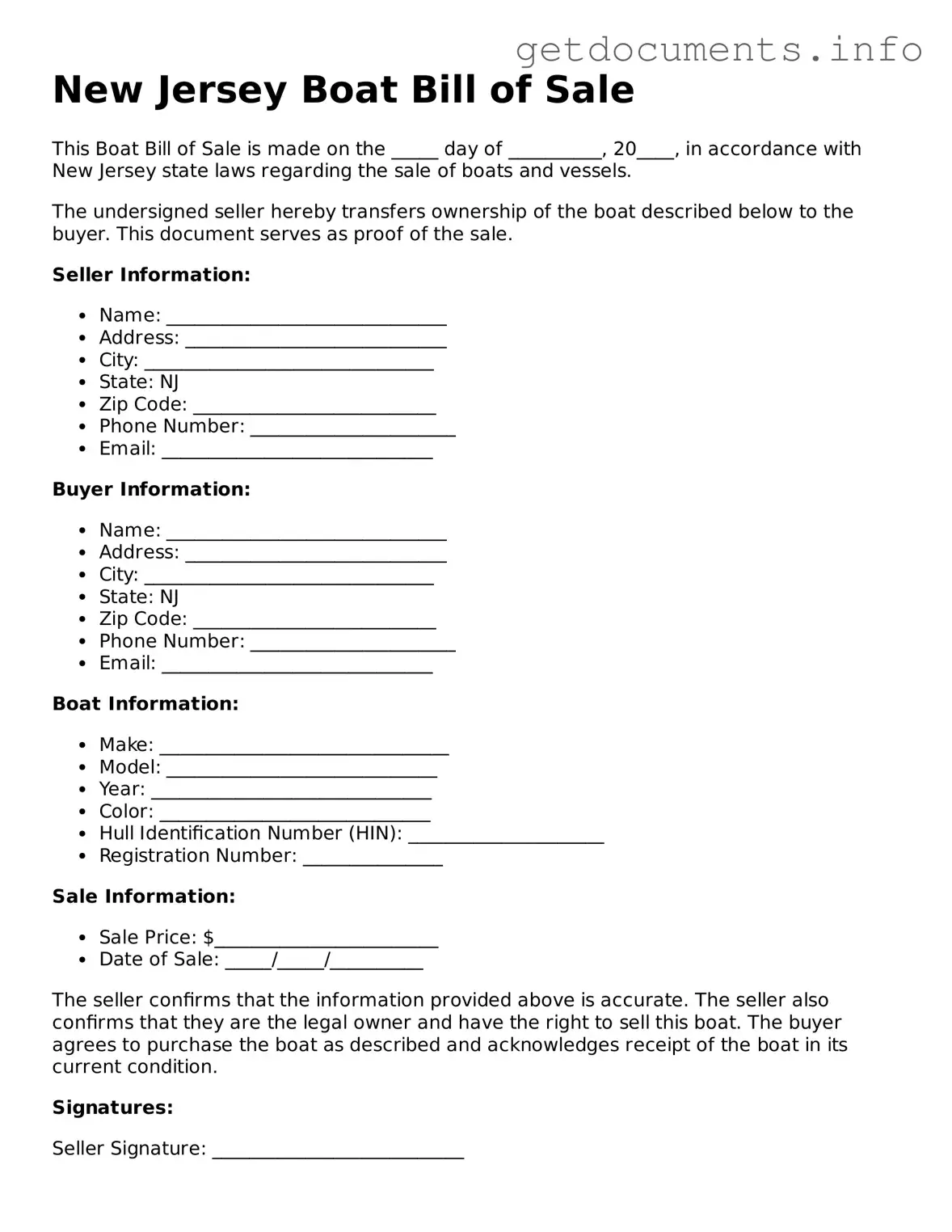Free Boat Bill of Sale Template for New Jersey
The New Jersey Boat Bill of Sale form is a legal document that records the transfer of ownership of a boat from one party to another. This form serves as proof of the transaction and includes essential details such as the buyer's and seller's information, the boat's description, and the sale price. For those looking to buy or sell a boat in New Jersey, completing this form is a crucial step in ensuring a smooth transaction.
To fill out the form, click the button below.
Access Boat Bill of Sale Editor

Free Boat Bill of Sale Template for New Jersey
Access Boat Bill of Sale Editor
Got places to be? Complete the form fast
Fill out Boat Bill of Sale online and avoid printing or scanning.
Access Boat Bill of Sale Editor
or
⇩ PDF File
